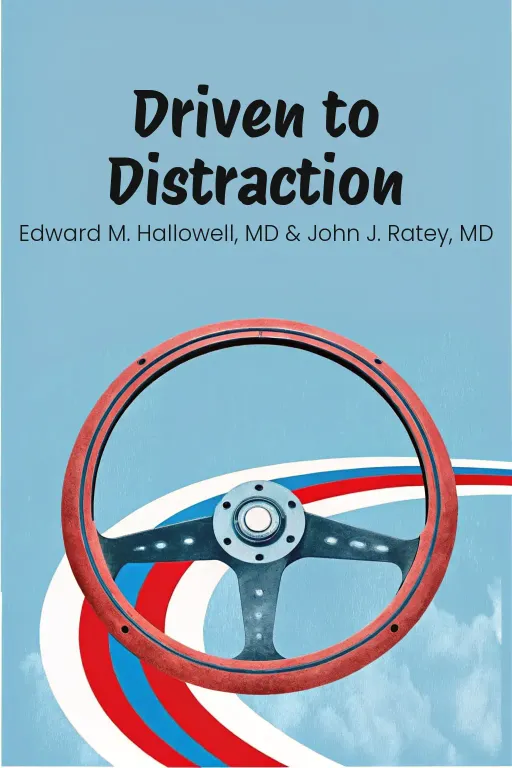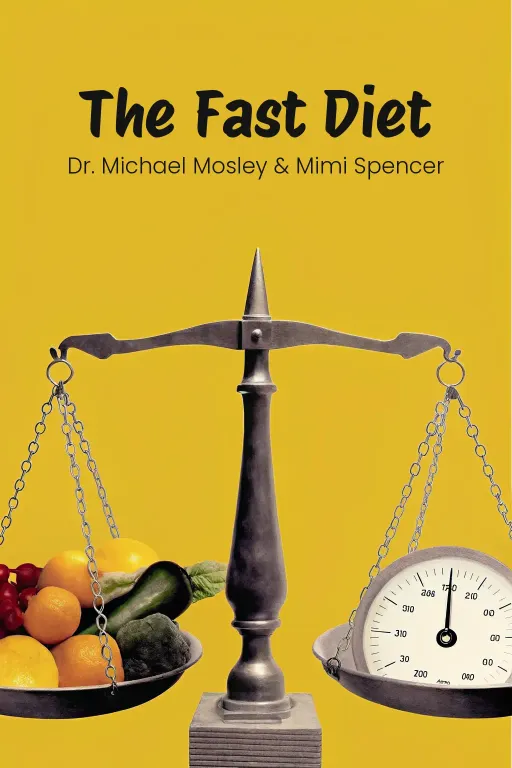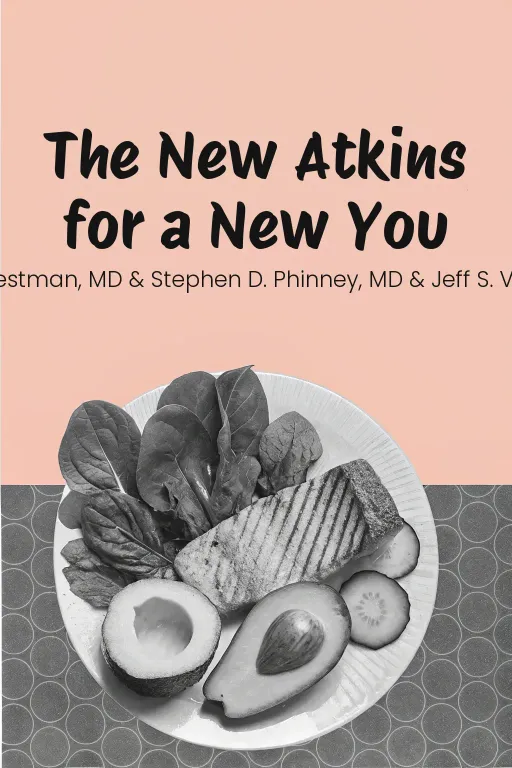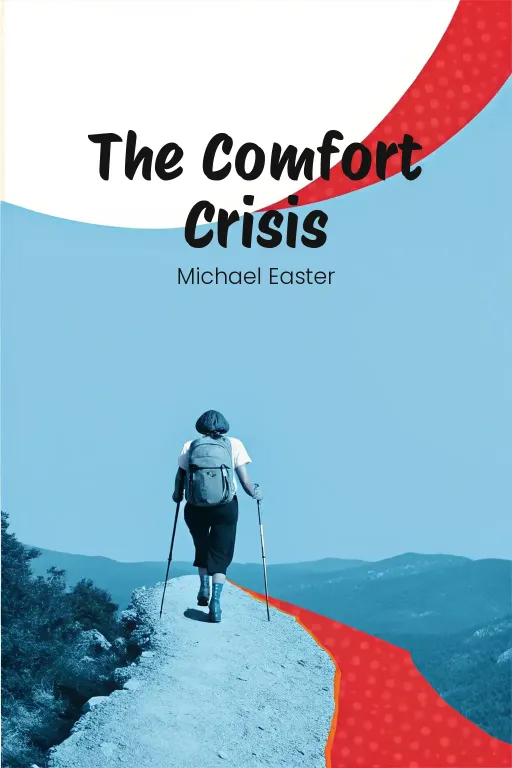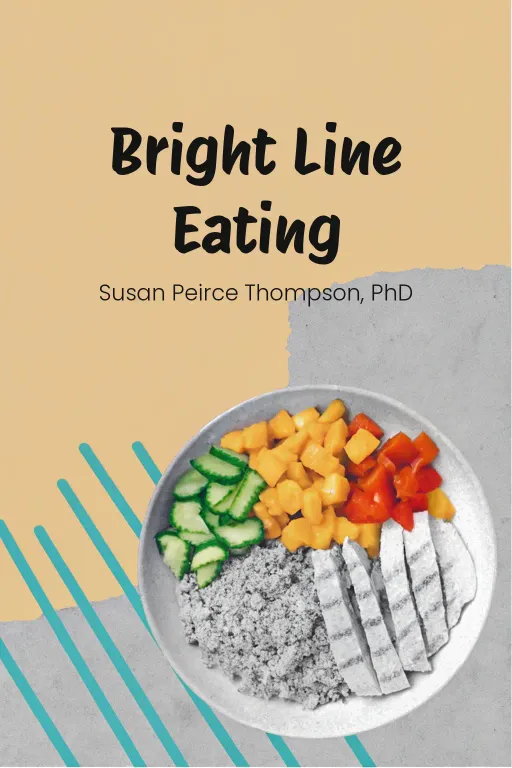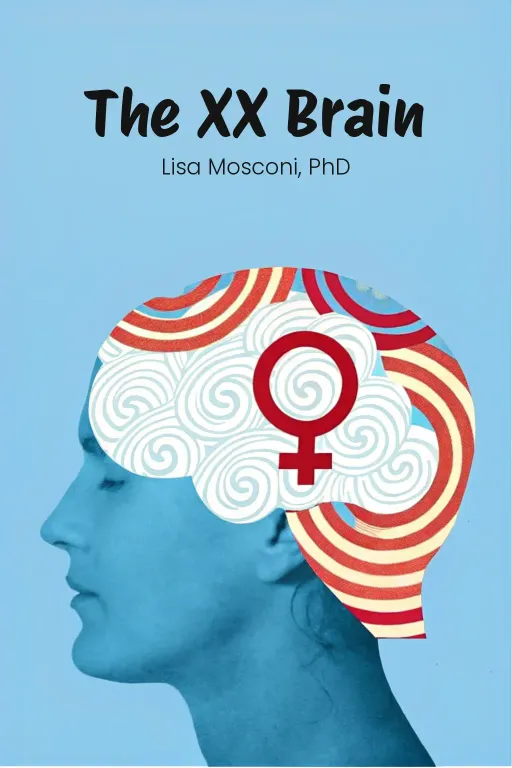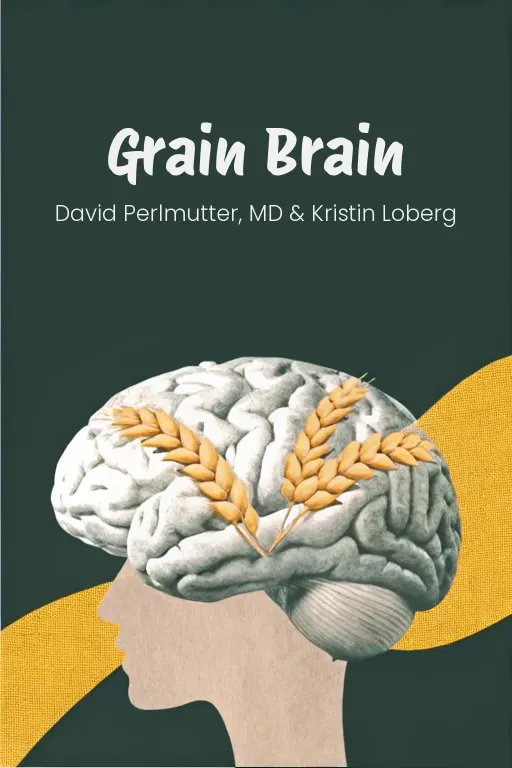
Small Choices, Big Health: The Ripple Effect
Podcast by Beta You with Alex and Michelle
How Small Choices Lead to Big Changes
Introduction
Part 1
Alex: Hey everyone, welcome back to the show! Today, we’re diving into something super fundamental: eating, moving, and sleeping. I mean, we all do it, right? But have you ever really considered how these three things intertwine to impact your energy levels, your mood, and even your health down the road? Michelle: Yeah, because my current relationship with health involves a large coffee and the “idea” of a balanced breakfast. So, are we talking about some kind of holy trinity of well-being here? Alex: Precisely, Michelle! In Eat Move Sleep, Tom Rath breaks down how these three elements are really the cornerstones of a healthy life. It's not just about shedding pounds or pumping iron; it’s about those small, consistent decisions that can actually ward off chronic diseases and seriously boost your vitality. What makes Rath's book so compelling is his personal experience. He dealt with a pretty rare genetic condition, which really grounds his advice in reality. Michelle: Okay, so it's not another one of those "live on kale and find inner peace" kind of books. I’m in. What's on the menu for today's discussion? Alex: Alright, here's the plan. First, we're going to explore why eating, moving, and sleeping are so crucial for a healthy life. Then, we'll get into some straightforward, practical strategies to weave them into your daily routine. And finally, we'll talk about how adopting these habits can inspire healthier choices in the people around you—like creating a ripple effect of well-being. Michelle: So, we’re basically designing the ultimate life hack. A little food, a little activity, a little rest, and voilà—a healthier you. Sounds good. I'm ready to jump in.
The Interconnected Triad of Health
Part 2
Alex: Okay, let's dive into why eating, moving, and sleeping are so interconnected. Rath presents them as a triad, and there's a reason for that. If one area is off, the other two suffer, it's inevitable. Think of them as the legs of a three-legged stool. If one's wobbly or missing, the whole thing just collapses, right? Michelle: Yeah, the stool analogy is good, but let’s get specific. If my sleep is a train wreck – hypothetically speaking, of course – how does that mess with my diet or my ability to exercise? Alex: Okay, let's look at the science. Lack of sleep "really" messes with your hormones, especially ghrelin and leptin. Those are the ones that regulate hunger. When you don’t get enough sleep, your body cranks up ghrelin, which is the "I’m hungry" hormone. But at the same time, it lowers leptin—that's the "I’m full" signal. So your body is basically working against you when it comes to making good food choices. Michelle: Ah, so when I'm up late watching shows and suddenly demolishing a family-sized bag of chips, it's not just a moral failing, it's biology hijacking my brain? Alex: Exactly! Rath points out that sleep deprivation makes you crave sugary, fatty, high-calorie foods because your brain’s desperate for a quick energy fix. And then, of course, your energy takes a nosedive, so physical activity is the last thing you want to do. That's where this interconnectedness—or, you know, the negative domino effect—kicks in. Michelle: Right, I see. So, one bad night's sleep, and it’s a triple threat: eating junk, skipping the gym, and then… being even more exhausted the next night? It's a pretty nasty cycle. Alex: Exactly, but here's the thing – and this is what’s great about the triad – it works both ways. Small improvements in one area, like going to bed 15 minutes earlier or eating a bit better, can actually reverse that domino effect. Once you start sleeping better, you've got more energy for movement, and then your food choices improve because you’re not craving junk as much. Michelle: Alright, let’s rewind and focus on food specifically. Rath seems to put a lot of weight on nutrition as the foundation, right? Alex: Definitely. It makes sense, actually. Food is our fuel. It determines whether we run smoothly or sputter. Rath argues that our cultural obsession with convenience – you know, processed and sugary foods – has "really" thrown us off track. These foods give us quick bursts of energy, but they lead to crashes that make us overeat and underperform, both physically and mentally. Michelle: So, skipping breakfast or grabbing a sugary muffin isn't just a bad habit. It's setting the stage for making bad decisions all day long. Alex: Right. Rath shares a great example of how a nutrient-rich breakfast – like fruits, eggs, or whole grains – can "really" stabilize your energy levels. Compare that to a sugary snack or nothing at all. The person who had a healthy meal is going to feel steady and focused, while the muffin-eater is stuck on a blood sugar roller coaster, craving their next fix before noon. Michelle: And what's his take on fad diets? Everyone’s tempted by them at some point. Alex: Rath is crystal clear that fad diets are a dead end, not just because they’re hard to stick to, but because they often ignore the quality of nutrients. Remember the low-fat craze? People cut out fats, sure, but they replaced them with sugar, and that didn't exactly do anyone any favors. Michelle: Right, like the "SnackWell's" era. The peak of irony. "Here, have this 'healthy' low-fat cookie, which is packed with twice the sugar now that we've removed all the taste.” Alex: Exactly. Rath believes you should aim for small, consistent adjustments, focusing on whole foods over heavily marketed "healthy" options. He suggests swapping soda for sparkling water or choosing fresh berries instead of desserts. They might seem small, but over time, they have a huge impact. Michelle: Okay, small but meaningful changes. Let's tie that to movement. What’s Rath’s take on our super sedentary lifestyles? Because, honestly, most of us are glued to our chairs all day. Alex: True. And Rath doesn't hold back: sitting is a major health threat right now. Even for people who work out regularly, long stretches of sitting can undo a lot of the good. The key, he says, is incorporating movement throughout the day. It doesn't have to be intense, just frequent. Michelle: Like setting a timer to stand and stretch or pacing while taking phone calls? Alex: Exactly. Even these little bursts counteract the metabolic problems caused by sitting for too long. Rath also suggests aiming for 10,000 steps a day, not as a rigid goal, but as a good benchmark for keeping your body active. Michelle: Okay, so it sounds like he's not as focused on gym routines and more about encouraging subtle, consistent choices, working movement into your daily life. Alex: Precisely. Parking farther away from the store, taking the stairs, walking during lunch breaks—those are all small changes that add up over time, creating huge benefits without feeling like a chore. Michelle: Right, so we’ve talked about food and movement. Now, sleep. Rath paints a pretty dramatic picture of how important this third pillar is. Something about sleep deprivation being comparable to being drunk? Alex: That’s right! Studies show that lack of sleep impacts your cognitive function as much as having a blood alcohol level of 0.19%. You're less focused, make poorer decisions, and ultimately less productive. And it's not just about mental clarity—sleep is when your body repairs itself, from muscle recovery to strengthening the immune system. Michelle: So when I pull an all-nighter and try to power through with caffeine, I’m basically driving on a flat tire, is that right? And I think I heard that sleep also has an impact on our weight? Alex: It does – it comes back to those hormones I mentioned before. Sleep deprivation not only makes you hungrier but also pushes you towards high-calorie foods for a quick energy boost. Then, because you’re running on fumes, you’re less likely to be active, which creates another downward spiral. Michelle: So Rath’s message is pretty clear: ignore one leg of the stool, and you're headed for a health disaster. But when these three things work together, they create their own self-sustaining system. Because when you eat better, you move more. When you move more, you sleep better. When you sleep better, you make better food choices, right? Alex: Exactly. It’s an upward spiral of health. And the best part is, this isn’t about being perfect. It’s about starting small with one change in one area and letting that momentum carry you forward.
Practical Strategies for Daily Life
Part 3
Alex: So, grasping this triad is step one, right? That gives you the base for strategies you can actually use. Now, let's talk about putting these ideas into practice, yeah? Rath's approach is really about making small changes you can actually stick with. It's those sustainable habits that are key. Michelle: Right, I'm with you. We’re moving from theory to real life now, which is good. So, how do these concepts translate when you’re actually living your day-to-day? Alex: Okay, let's start with nutrition. Rath is very clear that eating well isn't about these crazy diets. It's about just making better choices with what you've already got. Think about processed stuff, right? Rath points out how they mess with your blood sugar, kill your energy, and then just make you want more junk. Swapping those out for nutrient-rich options can make a huge difference. Michelle: Yeah, so we're talking back-to-basics, aren't we? Skip the processed stuff, stick to the edges of the supermarket – you know, your veggies, proteins, that kind of thing. But give me an example. What's the, uh, “first bite” look like here? Alex: Rath’s big on small swaps. Instead of a granola bar that’s secretly full of sugar, grab some fresh berries and almonds. That's going to stabilize your blood sugar and keep you going for longer. Another idea is just rearranging your kitchen – make the healthy stuff visible and easy to grab, and stash the junk where you can't see it. Michelle: Got it. So, it's like flipping the "out of sight, out of mind" thing. But doesn’t eating real food take effort? Like, prepping meals instead of just grabbing something packaged. Where does Rath come down on that? Alex: Exactly, and he knows convenience is tempting. So Rath's advice is all about planning. Meal prep doesn't have to be fancy. Cook once, eat twice, right? Make some extra grilled chicken, and suddenly you have easy protein for salads or wraps over the next couple of days. The goal is to make the healthy choice just as easy as grabbing the processed stuff. Michelle: Okay, so let’s say someone gets the eating thing down. What's next? Alex: Movement. Rath says our sedentary lifestyles have created big health issues. Sitting isn't just doing nothing; it's actively hurting us. Even if you work out for an hour, sitting for eight or nine hours can undo much of that good. His advice is just to find simple ways to add more movement. Michelle: And when he says “movement,” he’s not talking about like, intense gym sessions, right? This is more about… little pushes? Alex: Exactly. Rath suggests breaking up long periods of sitting. Like, standing up every 20 minutes, stretching, or even just walking around for a minute. If you like having a target, aim for 10,000 steps a day—not as some social media trend, but as a real benchmark for staying active. Michelle: So, it’s about almost secretly building an active life for yourself, without having to block off hours for the gym. But how do people make it work? I mean, we're all glued to screens, meetings, couches… Alex: Fitness trackers can be lifesavers here. Many can remind you to move, even if it just means standing up. Also, things like standing desks or walking while you're on calls can make a big difference. Rath’s really trying to shift our mindset, to see movement as a fundamental need, like food or sleep. Michelle: And speaking of sleep, let's move onto that. I know people throw around the phrase “sleep hygiene", but what does that actually mean? Alex: Sleep hygiene is is about your habits and routines that help you get good sleep. Rath talks about a few key things – one of the biggest is cutting screen time an hour before bed. The blue light from our devices messes with melatonin, which is the hormone that helps you sleep. So browsing on your phone is basically telling your body to stay awake. Michelle: So, if I’m up half the night answering emails, no wonder I can't sleep, huh? What should I do instead? Alex: Rath suggests screens with calming stuff – read a real book, meditate, or write in a journal. Changing up your environment can also make a difference. Set a consistent bedtime, block out light with dark curtains, and make sure your room is cool and comfy. All of that helps create the perfect sleep setup. Michelle: And again, it ties back to the other two parts of the triad. If you sleep better, you’re less likely to need junk food to get through the day. And you’ll have enough energy to move more. Alex: Exactly; it's all connected. Rath explains it well. Start with a healthy breakfast – eggs and fruit, say. That’ll give you the energy to take those little walking breaks at work. And then, in the evening, you eat a balanced dinner and unplug, so you're ready for a good night's sleep. It's like each good choice makes the next one easier. Michelle: Yeah, I see how these strategies reinforce each other, creating a positive cycle. And it all seems pretty… doable. These aren't massive changes – they're small, practical adjustments. Alex: That’s Rath’s big idea. It’s not about perfection or trying to change everything at once. Even one small thing, like swapping soda for sparking water or deciding to stand up every 20 minutes, can lead to big improvements. Michelle: Right, you're stacking successes on top of each other. One small choice creates a ripple effect. Eating, moving, sleeping— it’s not three separate things but one connected system.
Long-Term Impact and Community Influence
Part 4
Alex: So, now that we’ve set the stage, let’s talk about putting these principles into action. We’re looking at the long-term impact of small, consistent choices and how they ripple outward, affecting our families, workplaces, and even entire communities. Michelle: Okay, so this is about the bigger picture, beyond just my own habits. How does my decision to skip dessert or choose the stairs actually change the world around me? Lay it on me. Alex: It's amazing, really. Rath illustrates how our everyday decisions don't exist in a vacuum. They create a ripple effect, inspiring others, whether that's our families, colleagues, or people in our communities. These small changes can shift group dynamics and even lead to systemic change. Michelle: Alright, I'm intrigued. Let's start with families. How does my choosing, say, brown rice over white rice transform my household into some kind of health paradise? Alex: It's not as crazy as it sounds. Rath gives examples of how one person's shift can create a cascading effect. Imagine someone in your family starts prioritizing whole, unprocessed foods, like fresh veggies and quality protein, and begins making healthy meals. That naturally draws others in. Cooking might become a shared activity, a substitute for, say, eating takeout while watching TV. Kids pick up these habits too, leading to healthier routines that stick with them. Michelle: So, it's like a chain reaction – but instead of things falling apart, we get more energy, fewer arguments about junk food, and stronger family connections. Does Rath offer a specific example? Alex: Absolutely. He talks about families who moved away from convenience foods and focused on fresh, whole ingredients. Initially, it might have just been one person leading the charge, but it ended up changing their collective energy levels and well-being. They started eating together more often, preparing yummy meals loaded with vegetables. Over time, their health improved, things like weight and energy levels, and their family dynamic became stronger. It shows how one person's small efforts can create a lasting culture of health. Michelle: Interesting. Kids are definitely like sponges for this kind of thing. If they associate eating healthy with fun family dinners, they're more likely to want that lifestyle later on. Alex: Exactly. Studies cited by Rath suggest that kids who grow up eating whole foods with their families are more likely to maintain those habits into adulthood, which significantly lowers their risk of developing chronic diseases. It's a cross-generational impact. Michelle: So, by cutting back on sugary cereals, I'm essentially setting my whole family up for success. No pressure there! Okay, what's next? We've covered families, now let's move on to the workplace? Alex: Right, workplaces are another key area for health transformation. Rath points out that individual efforts can spark changes in company culture, particularly in sedentary environments. A great example is replacing traditional meetings with walking meetings, or as Rath called walk-and-talks. Michelle: Wait, walk-and-talk meetings? That's a bold move. Imagine: brainstorming sales strategies while dodging pedestrians. How efficient. Alex: Don't dismiss it so quickly! Rath mentions how a tech company made this practice a central part of its work culture. By holding discussions while walking, employees got moving and became more creative. Walking increases blood flow to the brain, which sharpens mental focus. Employees reported feeling more energized, less stressed, and more focused. Michelle: So, it's a win-win. What's the downside? Do they talk about how to make these habits stick? Alex: Yes, they do. It comes down to incorporating small wellness practices into the workday, encouraging short walking breaks, offering standing desks, or providing fitness perks. A supportive environment can make it easier to maintain these habits. And the best part? The organizations benefit from this, healthier employees take fewer sick days, are more productive, and are more resilient under stress. Michelle: That leads to lower healthcare costs – it's a win for everyone, not just the employees. But, let's take it a step further: what's the community-level impact that Rath talks about? Alex: That's where it gets really inspiring. Rath explores how your individual actions can contribute to community efforts that transform entire neighborhoods. For example, imagine a food desert: a community with limited access to fresh produce but lots of fast food options. What if a group of residents decided to bring in a farmer's market or advocate for getting a full-service grocery store? Michelle: So, just a few motivated people can create real change. Rath's basically describing community health superheroes. Any success stories? Alex: Absolutely. Rath features a neighborhood that had high rates of obesity and diabetes due to limited access to healthy food. A small group of residents teamed up, worked with local farmers, and started a weekly farmer's market. Over time, they noticed real improvements: obesity rates went down, diabetes cases decreased, people in the community became more engaged in their health. Michelle: Wow, that's amazing. A local market that lowers chronic diseases—that's like turning a small stone into an avalanche. I wonder why we don't see more of this? Alex: It usually starts with people being informed. Rath stresses that systemic change grows from individual actions, like advocating for better school lunch programs, pushing for public gyms, and making sure parks are safe and accessible. When enough people care and work towards these changes, the system shifts to make healthier choices easier for everyone, and a healthier culture becomes self-sustaining. Michelle: So, Rath's ripple effect theory comes full circle. One person making a simple health-conscious decision doesn't just affect them individually but flows outward by improving their family, boosting workplace wellness, and influencing community policies. Alex: Exactly. Rath emphasizes that personal health isn't a solo journey; it's inherently collective. Each healthy choice supports a broader cultural shift towards well-being over convenience, vitality over short-term pleasure. Michelle: So, the big takeaway is this: It's not about radical overhauls. It's about manageable, thoughtful changes. A domino effect that ends up creating something much bigger than just personal health. Alex: Nicely summarized. It starts with personal accountability but evolves into societal transformation. By making one smart choice, you can inspire someone else to do the same, and that ultimately turns into a healthier, more resilient world.
Conclusion
Part 5
Alex: Okay, so to bring it all together, Tom Rath's “Eat Move Sleep” really distills down to this: those little, conscious choices we make? They create this incredible ripple effect, and not just for our own health, but for the people around us too. When we really get how connected eating well, moving our bodies, and prioritizing sleep are, we start this amazing cycle of well-being that just feeds itself. Michelle: Exactly right. And the beauty of it is, we're not talking about these huge, life-altering overhauls. Rath's point, and this is important, is that it's those tiny, consistent tweaks—like, say, swapping out soda for sparkling water, or getting up from your desk for a quick stretch, or putting the phone down a bit earlier—that can totally change the game in terms of how we feel and how we perform. Alex: Absolutely, and that ripple effect extends beyond just you. Your habits can actually inspire your family members, shift the culture at your workplace, and even play a role in building a healthier community. Each small decision has so much more impact than we often give it credit for. Michelle: Alright, so here’s the deal, everyone listening: Just pick one thing—just one—from our conversation today that really clicks with you. Maybe it's reaching for an apple instead of a donut, standing up during that next meeting that could have been an email, or switching off your phone a bit before you climb into bed. Start small, and then just keep building on that. Alex: Exactly, and keep in mind, it's not about aiming for perfect, it's about making progress. These little steps, they really do add up and create momentum towards a healthier and happier you, and ultimately, a better world. Michelle: So, the million-dollar question is: what's that one small step you're going to take?
